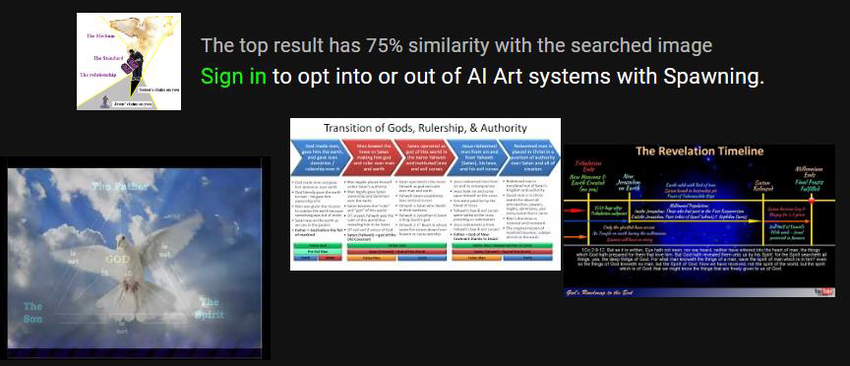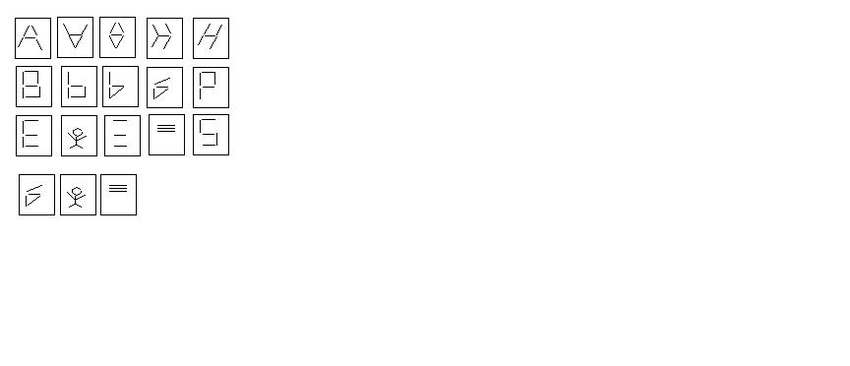# I am the Watcher. I am your guide through this vast new twtiverse.
#
# Usage:
# https://watcher.sour.is/api/plain/users View list of users and latest twt date.
# https://watcher.sour.is/api/plain/twt View all twts.
# https://watcher.sour.is/api/plain/mentions?uri=:uri View all mentions for uri.
# https://watcher.sour.is/api/plain/conv/:hash View all twts for a conversation subject.
#
# Options:
# uri Filter to show a specific users twts.
# offset Start index for quey.
# limit Count of items to return (going back in time).
#
# twt range = 1 24
# self = https://watcher.sour.is/conv/hhsmcea
They say AI is now filling up the content of the Internet with gaslighting posts from humans who do not exist and tweets from machines who make up stuff. Nowadays we discuss things with bots, not humans.
Question: How can I stop bots and AI machines stealing my content and using this info in a twisted fashion against humans, so the confusion continues?
@off_grid_living There is not much one can do, other than avoid putting any of it on places, that get scraped frequently or engage in data harvesting, for some other purposes.
You can also check the site https://haveibeentrained.com . There you can see, if any of your images are already in the scraped datasets, used to train AI. If they are, you can request them, to be removed.
Thanks Bro for the link. I uploaded a few images, and find the website rather strange cross referencing other images.

I see nothing similar in the images, except the first image.
wow, I am so surprised this site reads images and words in images easily !!!
@off_grid_living No problem. The dataset the site searches, is only comprised of images, with very detailed text descriptions attached to them, as that's something all images used for AI training need. Therefore I think this site works more based on those descriptions, than it does recognizing the text on the images themselves. 🤔
Thanks bro, are you telling me humans look at the images and trained the AI program how to scan the images for text and various links? After that the program may work on it's own?
I had a thought, what about creating images of tiny size for each letter, a set that is created by a program, and thus when you write a letter, the program stores this letter and compiles the images for that word. Every day the images change slightly, making it near impossible for AI to read the letters, hence cannot read the words.

This would be too hard for public to read, example the word "bee". Hmm? not easy to stop AI stealing your words and using the words against you.
I think it's time to go back to the hard printed words on paper, with images on paper. Cannot be easily copied that way?
@marado please give us a heads up if you are linking to Twitter. On mobile I have no way to know, and I am trying my best to avoid that hellhole.
@prologic Google scanned all kind of books, to improve their search results - letting people find books and studies, based on any of the text in them, while not having the content of the books freely available, for obvious legal reasons.
Despite only doing that, it still resulted in a big lawsuit, that dragged on forever, then settled, only to be brought back to court again. Eventually Google won, more or less because their service did more good, than harm, for both book sales and people looking for books to do book things with.
This case was also recently brought up by many, when some artists filed a class-action lawsuit against Stable Diffusion and Midjourney, for their AI, trained, using copyrighted images.
This is just a "brief" and maybe not entirely accurate summary, mostly based on this stream, by Uncivil Law, who is a real lawyer and surely more qualified to talk about this, than I am: https://www.youtube.com/live/CwTWwvLRdeo
Thanks for the video link bro, I watched i t for a while, over an hour !! Question, why do IPads listen to people, collecting every conversation we say, and the ads come to our phones based on that conversation. What do they do with all the content, stored digitally for ever? Allow robotic AI machines to talk local talk, like humans do?
Are we humans losing our abilities to be unique? Are machines so to take over? I see this as a real threat.
I suspect the end of humans as a species is near, and soon robotic AI machines will speak and talk just like humans can.
But for now, how does one protect the words we speak and write from machines that steal our intellectual property? Google claims it helps more people search and read our stuff? Hmm? If we forget what we speak after a week, than our words should die with us. I can read what I wrote from aged 17, I have diaries, and my words should remain there, in my books. How does reading a 17 yr old way back in 1970 help a 17 yr old living in a different world?
@off_grid_living There is a difference, between scraped data, used for AI training and the advertising companies, who track your behavior online, across sites, to better target you, with more relevant advertisements. These tools also give companies that use this technology, statistics about how people use their sites, so they can deduce, what needs to be changed, to increase their profits - but no AI is involved in any of that yet.
There might not be much one can do, to prevent what they publish online, from being scraped, to make some AI, but you can fight against targeted advertising and corporate analytic, by hardening your browser.
I think it's best to combine things like: Using adblockers, scriptblockers/filters, incognito modes, settings that delete everything, when the browser is closed, not allowing unnecessary cookies, logging out of services, right after you're done using them (unless you are sure, they don't track you).
There are more extreme measures too, but those are a bit of an overkill, for normal web browsing, in my opinion.
@thecanine What extreme measures? What about going back to XP as a program software platform, one that cannot run many things in Internet Explorer, or what about Windows 98, now there is a Internet Explorer, that will not allow much. Can you build Internet Explorer machines that have reduced features, like unable to run video content for instance? If you want to run a video, you click on allow, and than switch the ability off? Does this stop anything? Or do I still get download expenses?
@off_grid_living By more extreme measures, I meant the things, that Tor browser does. For all that is holy, or unholy, please don't ever return to Internet Explorer - it has destroyed the sanity of enough web developers as is, we can't risk it's user numbers ever increasing - never!
@thecanine So how do you browse the Internet? I use MicroSoft Edge, only because it was all I had in Windows 11.
@off_grid_living I use Opera. It comes with some basic ad blocker, built in. It's far from a good browser, it's just what I've always used and I'm too lazy to switch.
It's probably the same with most browsers on Windows, unless you harden them through settings and extensions.
@thecanine Thks Bro, Opera is a Linux OP application, not a browser for Windows OP, is that correct? What do you advise for oldies stuck on WIndows and File management systems, my own Internet Website is based on Text Files, and I use PHP to create the HTML webpages.
@off_grid_living Opera is on almost everything, I'm using it on Windows. There are probably way better options on Linux, Mac, phones and the rest of things.

